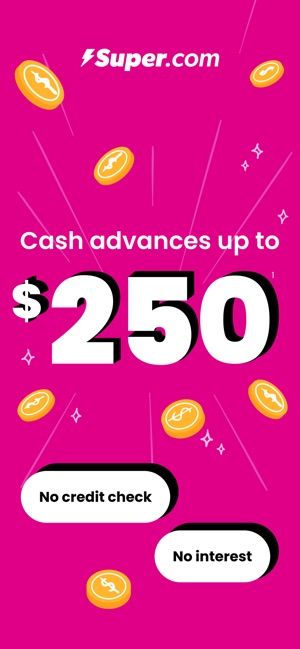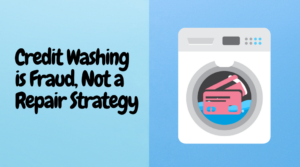You can get the best car loan with bad credit. But it’s best to rate shop to ensure you get the best financing deal possible.
What is Rate Shopping
Rate shopping is the process of comparing interest rates, fees, and terms from multiple lenders when you’re looking for a car loan.
The goal is to find the most favorable deal to save money over the life of the loan, but more importantly, rate shopping helps car buyers ensure monthly payments are within their budget.
Rate shopping encourages comparison shopping without penalizing borrowers for multiple hard credit inquiries.
How Rate Shopping Impacts Credit Scores
Most credit scoring models treat multiple car loan credit inquiries within a 14-45 day period as a single inquiry.
The “rate shopping window” depends on the credit scoring model used by the lender, for example:
- Older versions of the FICO® Score allow a 14-day span for rate shopping. That means you can apply with multiple lenders within a two-week period and the scoring model should treat them as one inquiry for score calculation purposes.
- Newer versions of the FICO® Score allows a 45-day span for rate shopping. But it’s important to note that many lenders continue to use the older versions of FICO®.
While each inquiry will still appear individually on your credit reports, your credit scores won’t take a hit for multiple hard inquiries. Credit inquiries remain on the credit reports for two years.
Benefits of Rate Shopping
Lower Interest Rates: Finding the lowest interest rate can save you hundreds or even thousands of dollars over the life of a loan.
Better Terms: Rate shopping can help you discover lenders offering more favorable terms, such as lower fees or flexible repayment options.
Improved Financial Health: Choosing the right loan or credit card can help you manage your finances more effectively and improve your credit score over time.
More car buying tips for people with bad credit
Pull your credit reports and scores
Before you look for financing. You want to know exactly what you’re dealing with before any lender pulls your credit reports. Any mistakes, errors, or outdated information should be disputed. You want your credit report and credit score to reflect as much positive information as possible.
Ask your credit union to finance you
When purchasing a vehicle start looking for financing at your credit union. Credit unions can often offer the best interest rates, especially if you are a long-term customer. Credit unions like to form total relationships with customers. That means checking, savings, mortgage, car loan, credit card, and possibly even retirement accounts.
Your credit union may be able to work with you if you need a bad credit car loan, especially if you have a direct deposit. You may be able to have the car payment come directly out of your checking account which may sway the approval process in your favor.
If you don’t have a credit union in your area, Consumers Credit Union operates primarily online and is available nationwide. They’ll work closely with you whether you’re looking for a brand-new car, used car, motorcycle or RV.
Online lenders for a bad credit car loan
Online bad credit car lenders like MyAutoloan will get your multiple loan offers after filling out only one loan application. The minimum loan amount is $7,500.
The car buying process is smoother when customers come in with financing in place. Plus, when you have your financing in place you become like a cash buyer who gets to call the shots.
Never pay the dealer’s price
If you don’t like negotiating, take someone with you who does. Edmunds, a popular car-buying information site, says you can save up to $2,000 off the asking price if you are willing to negotiate. It doesn’t have to take all day. Never allow a salesperson to keep you isolated in a little cubicle filling you up with beverages while they go and consult with the “Wizard”’ (finance manager).
Never negotiate the monthly payment
Car dealers like to focus negotiations around the monthly payment of a car. Don’t even answer the question if a salesperson asks you “how much can you afford to pay monthly”. Refocus the attention towards the cost of the car and the interest rate, if you choose dealer financing.
Remember, you have your financing in place because you’ve been pre-approved by a lender already. There’s no doubt the dealer will try to run your credit to see if they can finance, but just say no thank you.
Know your bottom line and keep in mind a car dealer’s initial offer can be marked up as much as 20 percent above the sticker price. Knowing this can give you a lot of wiggle room to negotiate a fair asking price.
Never take a car home prior to final financing
Many unsuspecting car buyers have been caught in this scenario and ended up with a much higher interest rate than expected. Customers get excited about the purchase but don’t realize the deal isn’t finalized.
You take the car home thinking you have an agreement but the dealer calls you the next day and says there’s a problem with financing. You are then informed that financing is possible but at a much higher interest rate. Dealers don’t always emphasize the car is being delivered subject to final approval.
Finally, review all documents and paperwork
Review final paperwork before signing any contract. Be certain that all negotiations agreed upon are in the final contract. Check the price of the car, interest rate and loan term. Check the fees and costs and don’t feel pressured into purchasing extra features, such as gap insurance and extended warranties.


















